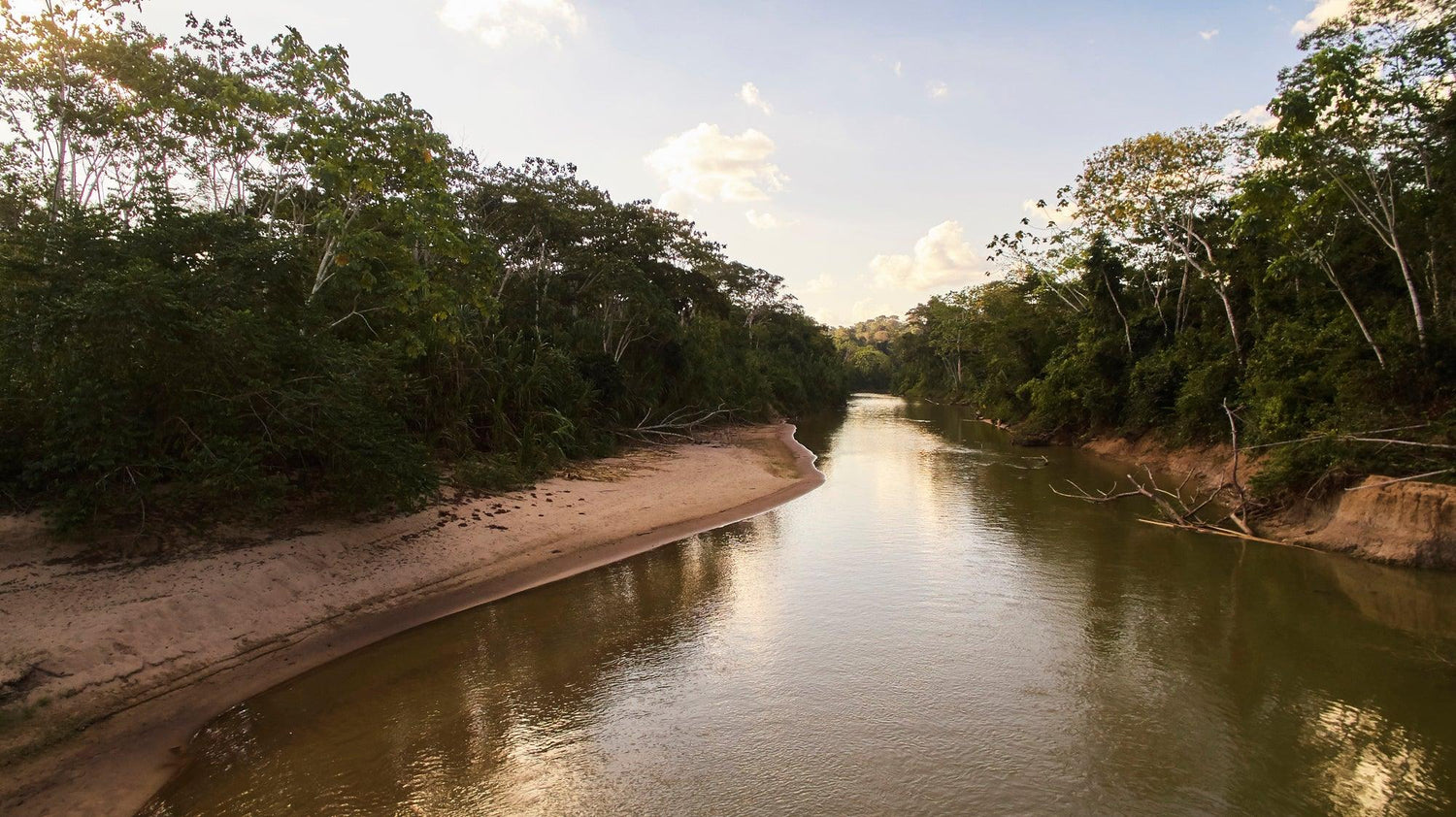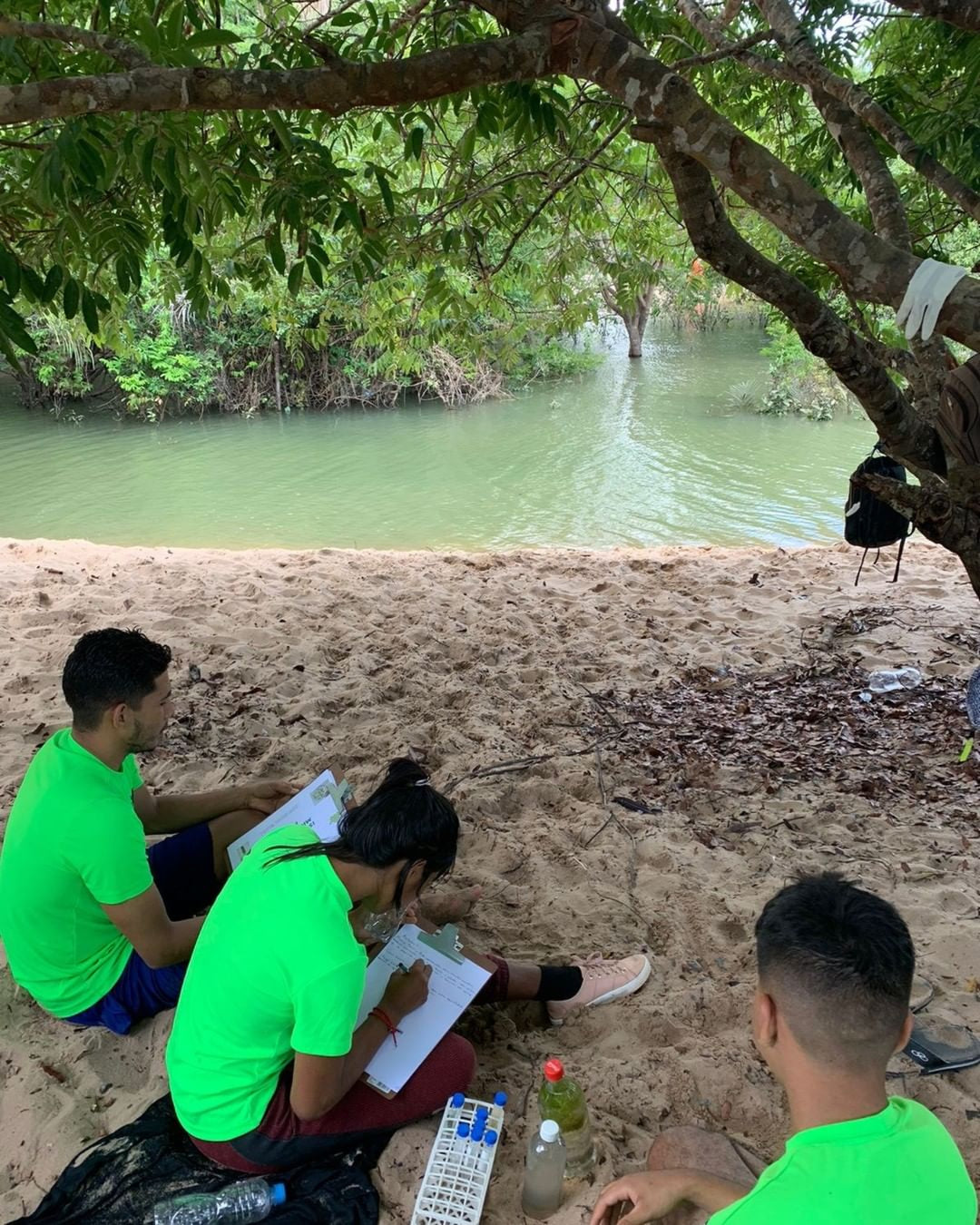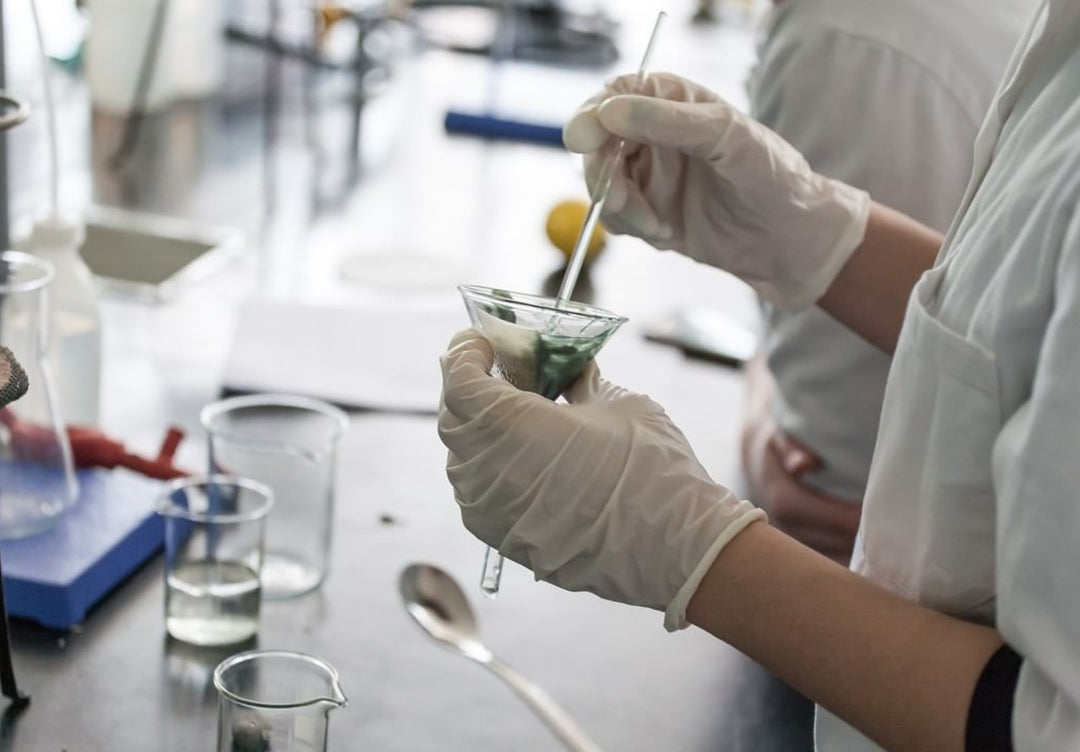
community
Meet MuCA: An Amazonian Museum
At the heart of the Amazon, in the Northern Brazilian state of Pará, lies a museum that is equal parts rooted in facts and ancestral wisdom.
On any given day, you can find The Amazon Science Museum, known as MuCA, and its team of scientists taking a river boat up and down the aqueduct, testing water, identifying potentially lethal animals, gathering ingredients or plants or algae. The team is often accompanied by locals who have grown up along the river and know its unique bends and temperament; important pieces of information to have in your back pocket when in the Amazon. “We don’t think: ‘We’re scientists, we know everything,’” says Isabel Portugal, a marine biologist and professor of algae with a PhD in biotechnology who runs the museum’s algae facility. “It’s also important for us to understand what the indigenous communities are doing, because a lot of it is ancient work, and really great work."
MuCA uses education and science as strategies for nature conservation and a more prosperous, equal and sustainable future for Indigenous Peoples and Local Communities. With their help, MuCA's team of scientists have discovered over 25 species of micro algae, all of which can be extracted and grown. Some are used for food or energy or pharmaceutical purposes, especially for the local impoverished communities that keep getting sick from the lack of access to clean water. Some contain oils rich in omegas 3 and 6, and can be used for cosmetic purposes, for the likes of Costa Brazil.


“Collaborating with nature, and supporting the communities that we actually work with, is the reason I created Costa Brazil,” says Francisco Costa, who credits the indigenous community the Yawanawá with introducing him to Breu, the ingredient that inspired the entire line. “I could not have this brand without sourcing the ingredients from the Amazon.”
Our last journey into the Amazon cemented our partnership with MuCA and introduced us to new friends and mentors such as Portugal. Here, a few words of wisdom from her when it comes to immersing yourself in nature. Just in time for earth month.
1. Don’t deny science, but also consider people who live with nature and the ancestral way.
2. Observe. Even if you're not in the Amazon but have a tree in front of your house, observe. There are bees, ants, birds. When you observe, everything becomes more clear.
3. Just because something looks simple, like an algae cell, doesn’t mean it doesn’t hold abundant power.
4. Spend time not only near water but also looking at it; you’ll see there is a lot of life there.
5. Remember: We are nature. We have a full family of microorganisms inside of us.
SHOP THE STORY
Breu | Aroma Refill | Body Cream | Body Wash | Bath Salt